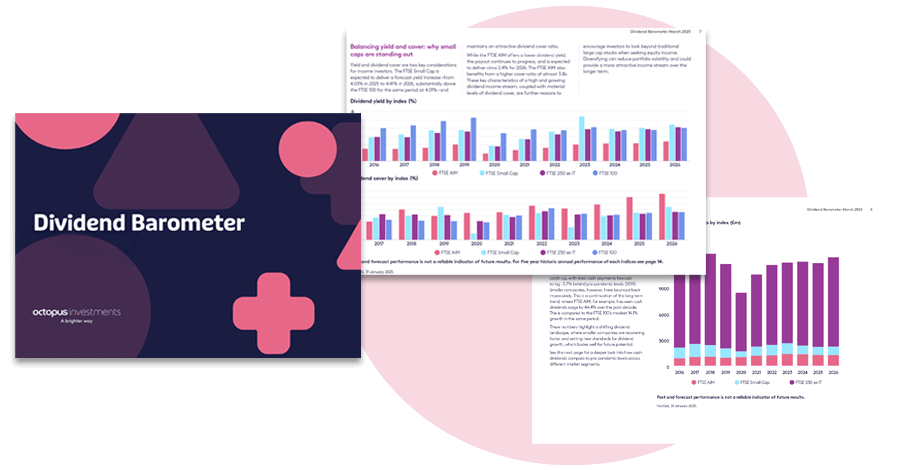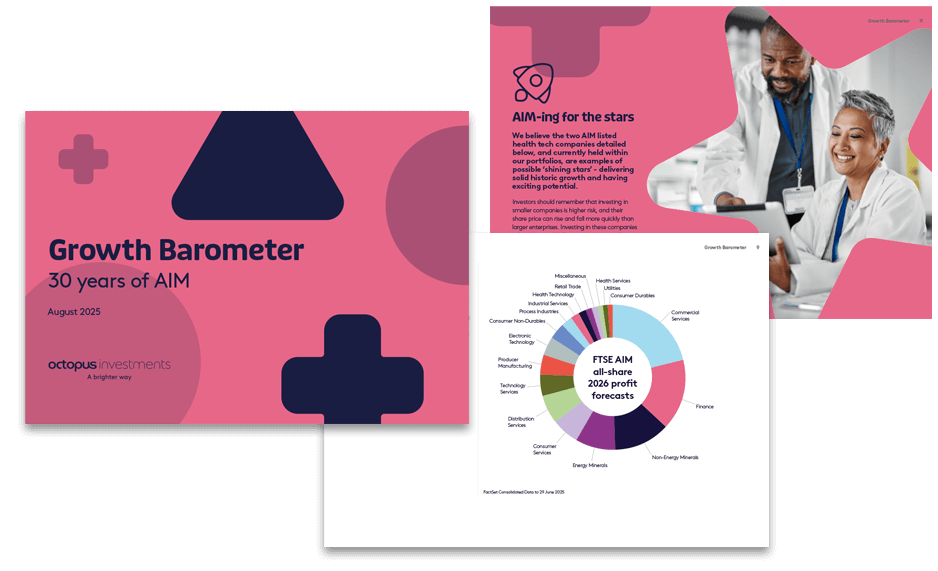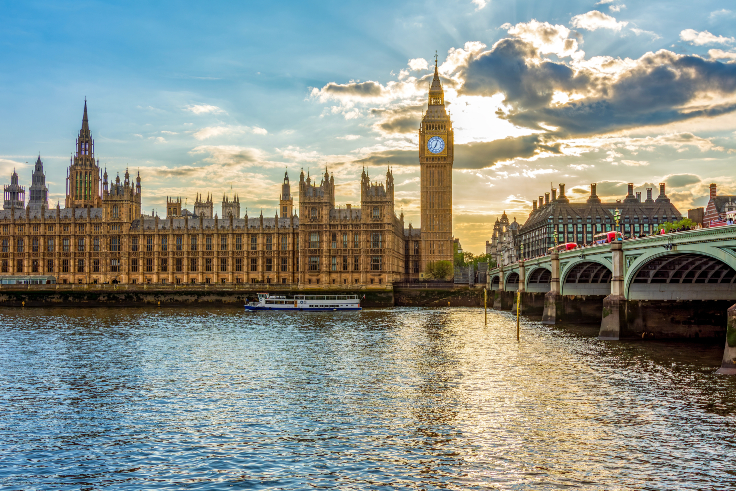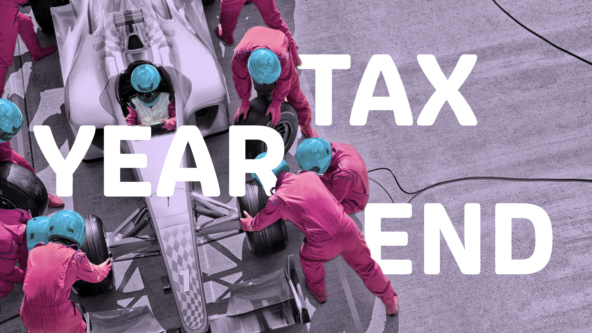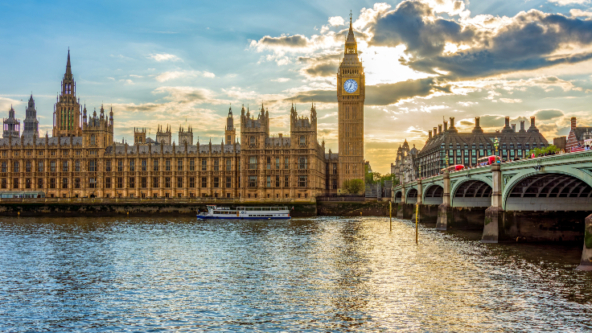Last updated: 5 January 2026
The Chancellor’s first Budget included a clear focus on growth and set a direction for how this government intends to get there. Following a manifesto that was light on financial policy, this insight will help you recommend effective planning for clients with more certainty.
Inheritance tax
Advisers and investors have been living with speculation about inheritance tax for about two years. First the heavy speculation that the previous government could consider reducing or eliminating this tax. Then speculation since the election that the current government might look to increase inheritance tax receipts.
Speculation ended with this Budget, with a series of announcements that combined to leave a more generous range of estate planning options than families may have feared:
- Nil-rate bands remain untouched, albeit frozen for an extra two years, until 2030. That includes the residence nil-rate band (RNRB), which many had thought could be a target for increasing tax receipts.
- Inheritance tax will be reinstated on unused pension pots, effective from April 2027.
- Agricultural Property Relief (APR) and Business Relief (BR) – several reassuring announcements were made about these valuable tax reliefs, which now have cross-party support, having previously been protected in the Conservative party’s manifesto.
- Nil rate bands remain untouched, albeit frozen for an extra two years, until 2030. That includes the residence nil rate band (RNRB), which many had thought could be a target for increasing tax receipts.
- Inheritance tax will be reinstated on unused pension pots, effective from April 2027. While disappointing, this wasn’t a surprise and will be an advice opportunity to help clients to use this capital to fund lifestyle costs and free up other capital for investment and planning. You might also consider whether suitable clients would benefit from taking their 25% tax-free lump sum and investing in Business Relief (previously called Business Property Relief or BPR).
- Agricultural Property Relief (APR) and Business Relief (BR) – several reassuring announcements were made about these valuable tax reliefs, which now have cross-party support, having previously been protected in the Conservative party’s manifesto.
As a reminder, Business Relief-qualifying assets must be held for at least two years on death.
The Government has committed to supporting these reliefs, creating a new combined £2.5 million lifetime allowance for APR and BR investments in unquoted companies. That means up to £2.5 million of qualifying assets can provide relief from inheritance tax.
Above this lifetime allowance, assets will qualify for relief at a 50% rate uncapped (a 20% effective rate of inheritance tax).
AIM shares will continue to benefit from relief from inheritance tax, but at a reduced rate of 50% relief (no matter the value of shares held).
These changes do not come into effect until April 2026. Until then, BR and APR continue to provide 100% relief from inheritance tax to an unlimited value. BR remains available provided shares have been held for at least two years when a client dies.
As the Chancellor has committed to only holding one fiscal event a year, investors and advisers will benefit from dramatically increased certainty.
Inheritance tax allowances have remained frozen since 2009, and both the number of families and value of assets now subject to inheritance tax continues to increase. But this is a tax that can be planned for, including by taking advantage of well-established and supported inheritance tax reliefs.
What does this mean for clients invested with us?
Investors in our BR-qualifying portfolios need take no action. The rules will remain in place as is until April 2026, during which time their investments should qualify for 100% relief from inheritance tax.
From April 2026, investments in our AIM inheritance tax portfolios should qualify for 50% relief from inheritance tax. Our Octopus Inheritance Tax Service should qualify for 100% relief from inheritance tax up to the lifetime cap, and 50% relief on the value above.
Please remember BR qualification is assessed on a case-by-case basis by HMRC after the death of an investor.
The Budget and Octopus Services
We now benefit from clarity on both BR and inheritance tax. The AIM market saw an uptick immediately following the Budget as a result, and both lines of our BR-qualifying investments continue to present flexible estate planning options for suitable clients.
The Octopus AIM Inheritance Tax Service and ISA
The Octopus AIM Inheritance Tax Service gives investors the opportunity to invest in a portfolio of shares listed on the Alternative Investment Market (AIM) that offers the potential for capital growth. These investments aim to qualify for 100% relief from inheritance tax until April 2026, and 50% thereafter.
The Octopus Inheritance Tax Service
The Octopus Inheritance Tax Service continues to target an average annual 3% return for its investors. This Service aims to qualify for 100% relief for inheritance tax on unlimited amounts until April 2026. After this date, the first £2.5 million invested should continue to qualify for 100% relief, with any value above qualifying for 50% relief.
Our Venture Capital Trusts and EIS investments
EIS and VCT investment incentives had been extended for ten years prior to this Budget. This remains unchanged and supported by this government.
Capital Gains Tax
The Budget saw capital gains tax rates increase from 10% to 18% (starting rate) and from 20% to 24% (higher rate). The change feels relatively modest compared to speculation. Business Asset Disposal Relief (previously Entrepreneurs’ Relief) has kept the lifetime limit of £1 million, but the rate of tax will be increasing from 10% to 14%, then eventually to 18% over the next few years.
Key risks to keep in mind:
- The value of a Business Relief, VCT or EIS investment, and any income from it, can fall as well as rise. Investors may not get back the full amount they invest.
- Tax treatment depends on individual circumstances and may change in the future.
- Tax reliefs depend on portfolio companies or VCT maintaining qualifying status.
- The shares of smaller, unquoted companies and VCTs are high-risk and could fall or rise in value more than other shares listed on the main market of the London Stock Exchange. They may also be harder to sell.
- An Octopus AIM Inheritance Tax ISA is likely to be higher risk than more mainstream stocks and shares ISAs.



